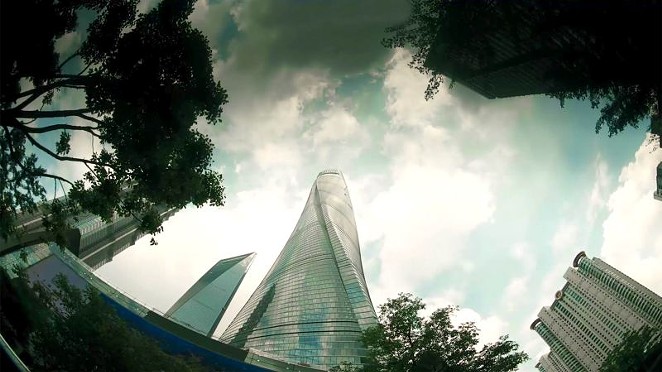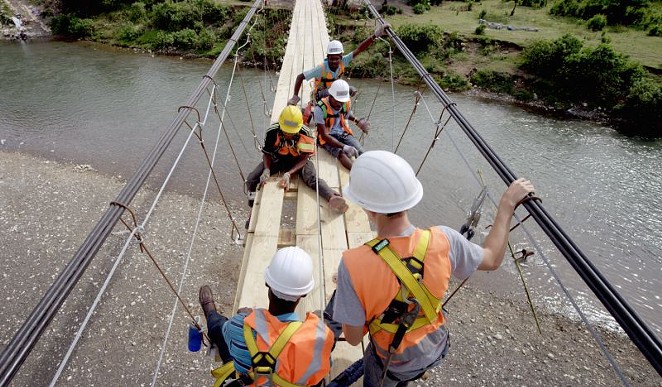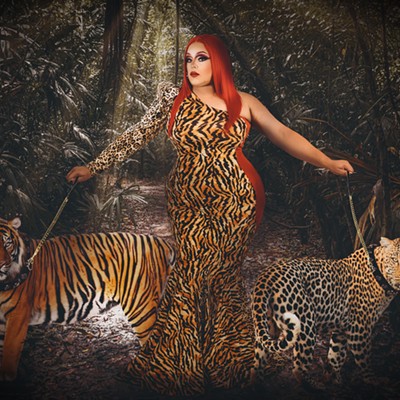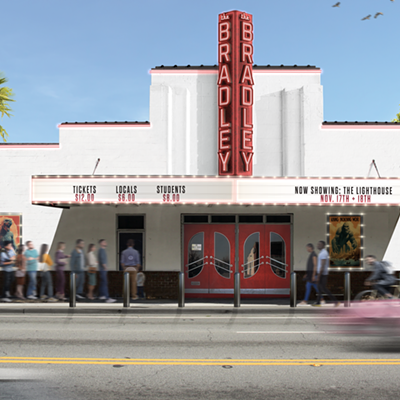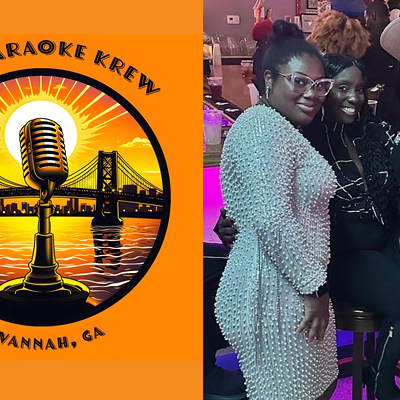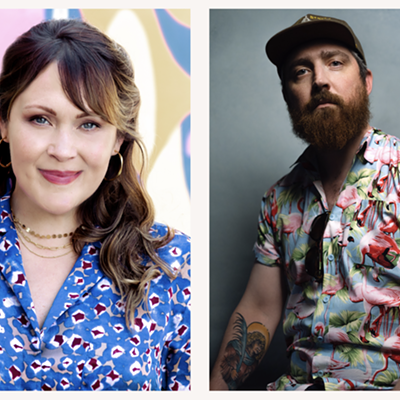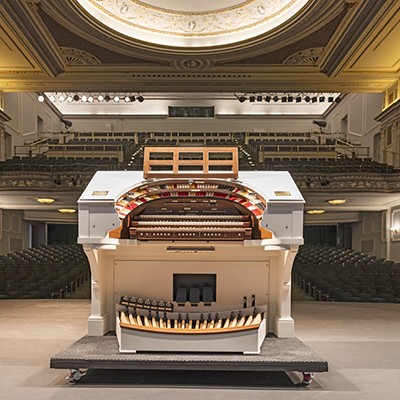IN Dream Big: Engineering in our World, audiences see how human ingenuity has shaped their reality.
The film, narrated by Jeff Bridges, highlights many promising young minds, including Avery Bang, President and CEO of Bridges to Prosperity. In her work, Bang provides isolated communities with access to essential healthcare, education, and economic opportunities by building footbridges over impassible rivers.
After the Tharpe Engineering Group and the Society of Women Engineers, Chatham County Chapter-sponsored screening, Bang will take part in a panel talk alongside Cody Tharpe of Tharpe Engineering Group, Whitney Holt of Gulfstream, and Bryan Knakiewicz, Ph.D., of Savannah State University.
We spoke with Bang about her path, inspiring future generations, and more.
What kind of challenges did you encounter in founding Bridges to Prosperity’s University Program?
The growth of the university program was actually fairly organic. During my first years as a volunteer with B2P I saw the opportunity for engineering students to be engaged in this exciting work in a very hands-on way. Ironically, some engineering students graduate without ever having built anything, so the B2P initiative was welcomed by both administration and engineering students anxious to find real-world opportunities to learn the process from conception to implementation to beyond.
So often we see our generation getting called lazy and selfish, but as Dream Big shows, you are surrounded by inspirational, hardworking folks. Is there anyone in your field you’re particularly inspired by right now?
I am constantly inspired by the tenacity, passion, and brilliance of the people I encounter in my work: staff, partners, volunteers, and above all, the communities we work with. Time and again, despite the laundry list of challenges we encounter with each project, we execute and deliver quality work. The over 250 footbridges constructed to date by B2P serve rural communities totaling nearly one million people and about 65,000 return trips are made each day. We come together to build beautiful, safe, and lasting bridges that create crucial access and opportunities for rural communities all over the world.
What is your proudest moment in your work with Bridges to Prosperity?
Every child I see crossing a bridge to go to school, every farmer going to market and town having access to health care and employment—those are all momentous events.
But I’ll share the moment when I built my first bridge. I’m in the Peruvian Andes, accessible after walking several hours and after taking a minibus through hairpin turns. We spent several weeks sleeping in a schoolhouse. On the inauguration day for the bridge, the local village sacrificed a goat as part of a ceremony of giving back. It really hit me when we cut the ribbon with the mayor, surrounded by the kids from the schoolhouse where we’d been sleeping for weeks, the farmers who had grown the food we’d been eating and the women who had brought soup to the construction site. I’m not much of a crier, but I was crying!
How would you encourage young people, particularly young women, to get involved in engineering to impact their world?
One of the reasons I got involved with Dream Big was to introduce engineering to a new generation. I’m most passionate about getting young people in the door—particularly young girls and those from underserved communities who might not be able to have an engineer as a role model in their lives. You can’t be what you can’t see, so as an engineer and a woman, it’s crucial that I be visible.
I’m motivated by this idea of how do we find a new engineer within rural Rwanda, or how do we find an engineer in that girl who thinks she doesn’t like math in Middle America? Engineering is a white-male-dominated field. At the moment, I’m really not seeing the diversity of thought that we’re going to need in the decades to come. That has to change.
Being a woman in engineering is an amazing career choice and I cannot recommend pursuing this path enough! We need more young ladies in the industry and if you want to truly help humanity, become an engineer. ...You can provide isolated communities with access essential healthcare, education and economic opportunities. You can change their worlds.

